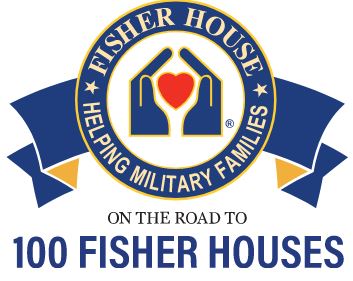 WASHINGTON, DC — Having a loved one in the hospital can be one of the most stressful experiences for a family. For the family of a veteran who might have to travel long distances to a VAMC to receive care, and be away from home for an extended period of time, that stress is coupled with the financial strain of finding a place to stay and the anxiety of being in a new place.
WASHINGTON, DC — Having a loved one in the hospital can be one of the most stressful experiences for a family. For the family of a veteran who might have to travel long distances to a VAMC to receive care, and be away from home for an extended period of time, that stress is coupled with the financial strain of finding a place to stay and the anxiety of being in a new place.
This is where Fisher Houses can play a key role in making a difficult time just a little easier.
The Houses began with Zachary Fisher, a philanthropist and builder. According to the Fisher Foundation official history, in 1986 Fisher received a call from Pauline Trost, the wife of the Chief of Naval Operations. She had watched a family exit a helicopter with their luggage at the National Naval Medical Center in Bethesda and wondered where they would stay. Hotels in DC were expensive. Their family member could be at the medical center for weeks or months.
It gave Fisher the opportunity to combine his philanthropy with his lifelong passion for construction and a deep patriotism. In 1990, he and his wife, Elizabeth, created the Fisher Foundation. The goal was to build houses on or near VA and military hospitals where families could stay while their loved one was a patient.
“Fisher Houses are homes of comfort that give our nation’s veterans and their families, active duty servicemembers, and caregivers all the amenities of a 5-star hotel, including customer service and so much more,” explained Stacey Childs, House Manager of the Fisher House on the campuses of the DC VAMC. “The Fisher House Foundation–they construct the home, fully furnish them, and then graciously donate the [House] over to VA or the grounds of the military installation as a gift.”
To date, 92 Fisher Houses are in operation on or near VA campuses and military bases throughout the U.S., as well as in Germany and the U.K. In 2021, 17,000 families of veterans and active duty servicemembers were guests at a Fisher House.
It’s the job of Childs and house managers like her to make those stays as pleasant as possible, even though the circumstances are not.
“I like to tell people that no two days are alike,” Childs said. “As a Fisher House manager, I organize, I plan, I direct administrative operational, I manage a program support assistant and a housekeeper. I orient guests and plan special events.”
The DC House has 20 rooms and a 42-guest capacity when full. It’s also right across the street from the medical center. As each family comes in, Childs tries to determine what their needs are, including what they like to eat. While there’s a general fund for maintenance and the replacement of appliances, much of the day-to-day functioning of the House comes through donations of gift cards, clothing, food and money.
But while much of her job is dealing with the nuts and bolts of running what is essentially a small hotel on a VA campus, she is also on hand to help family members cope. Prior to becoming the House’s manager eight years ago, Childs spent 25 years at VA working first in therapeutic recreation, and then later as a voluntary service specialist.
“[As a therapist] I assessed and interviewed patients’ social, mental, emotional, and physical level of functioning so that we could work to restore or improve their functioning and independence,” she explained. “Then I transitioned to voluntary service…and helped in recruiting, interviewing, orienting, training and placing appropriate volunteers where they met the needs here at the requesting services at the medical center.”
That combination of experience has made Childs very good at telling what a person needs, even if they don’t always say it.
“I’d like to say I’m the social worker. I can be the counselor. I can be the therapist for these families,” Childs explained. “There are many times when you have to stop what you’re doing because the caregiver or spouse is breaking down. Or sometimes they say this is the best night’s sleep I’ve had in years because they say they’ve been taking care of my husband or my wife. Coming from a clinical background, from therapeutic recreation and working with mental health patients, those are the things I always keep in mind first.”
Before the pandemic, the DC Fisher House averaged 70%-80% full at any given time. Sometimes all 20 suites were occupied and applicants had to be turned away. During the first year of the pandemic, that rate plummeted as the DCVAMC put a hold on nonessential medical procedures. Now the occupancy rate of the Fisher House is slowly coming back, holding a 32% occupancy rate as of mid-November.
One of the lasting benefits of the House that was never intended by its founders is the connections made between the different families staying there, some of whom meet multiple times during different stays. While the families come from all walks of life, they are bonded by the experience of taking care of a family member.
“Fisher Houses are a safe space for those families,” Childs explained. “They have the best ongoing relationships with spouses or families that they met here in the Fisher House. Even years later, some are still the best of friends.”

